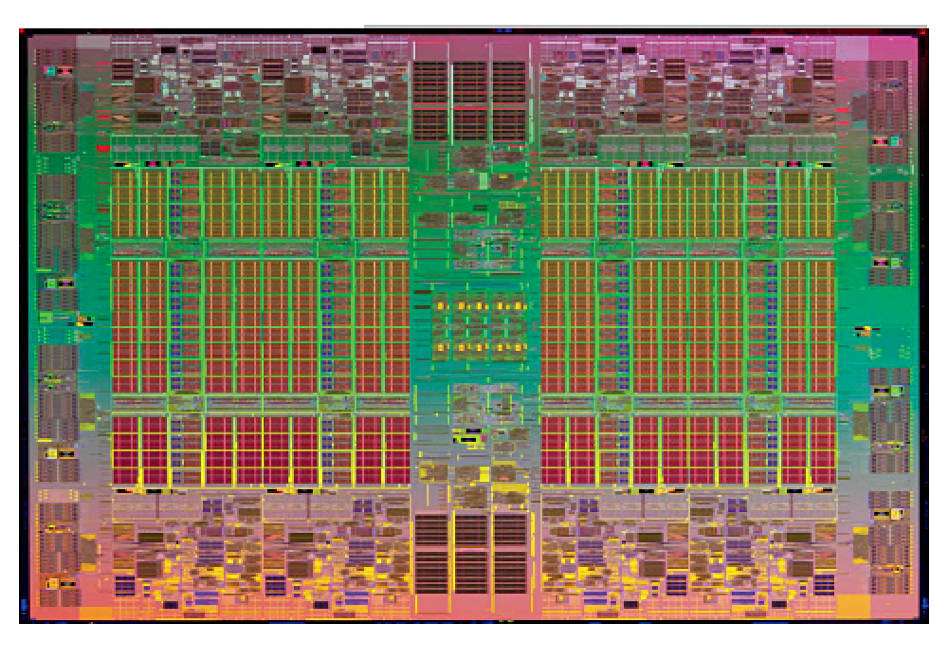Debian Dev To The Rescue After Proposal To Remove Itanium From Linux Kernel

Linux kernel developers have debated removing support for Intel and HP's now officially defunct Itanium/IA64 platform from the project, with the outcome appearing to be a proposal to keep it alive.
A Wednesday post by Arm principal software developer Ard Biesheuvel pointed out that "The IA64 port of Linux has no maintainer, and according to a report from its only remaining user [0], it has been broken for a month and nobody cares."
Biesheuvel suggested that set of circumstances makes persisting with support a bad idea.
"Given that keeping a complex but unused architecture alive uses up valuable developer bandwidth, let's just get rid of it," he wrote.
Linux boss Linus Torvalds weighed in with his opinion that "I'm not a fan of IA64 as an architecture, but it's a bit sad to remove it entirely. It's not like it's been a huge maintenance burden in general."
But he admitted that "if it doesn't work, and nobody has the time and/or inclination to figure out why, I don't really see any alternative" to ending support. He later opined that keeping IA64 alive isn't much more onerous than the effort to keep another long-dead architecture – DEC's Alpha – as an option for kernel users.
- Make Linux safer… or die trying
- Linus Torvalds releases probably unnecessary release candidate eight for Linux 6.2
- Oracle loses appeal against $3bn payment to HPE over withdrawal of Itanium support
- The Register just found 300-odd Itanium CPUs on eBay
As the thread considering the future of Itanium burbled along, a savior emerged: Physicist and Debian developer John Paul Adrian Glaubitz posted "I definitely have the time to look after the architecture as I am also maintaining it in Debian."
Glaubitz even admitted "I always have an Itanium server ready for testing kernels that I can power on and control remotely via its built-in management system."
Better yet, he had set aside some of next weekend to fix the recent regression that caused the kernel to break on the platform.
Discussion then drifted off into the details of what's needed to make the kernel work on Itanium, again.
Intel formally and finally retired Itanium in July 2021, bringing to an end an odd story that started in the mid-1990s. Back then, Intel and a pre-split HP felt the x86 architecture wasn't a viable heir to the Unix-centric minicomputers that functioned as the midrange servers of the era. IA64 was their response – a bad one as it turned out, because x86 servers did just fine.
The platform never really took off, and Intel stopped work on it in 2004 – but by then enough users had emerged that Linux kernel support made sense.
A near twenty-year afterlife as legacy tech ensued.
And thanks to Glaubitz's kind offer, that afterlife looks set to continue. ®
From Chip War To Cloud War: The Next Frontier In Global Tech Competition
The global chip war, characterized by intense competition among nations and corporations for supremacy in semiconductor ... Read more
The High Stakes Of Tech Regulation: Security Risks And Market Dynamics
The influence of tech giants in the global economy continues to grow, raising crucial questions about how to balance sec... Read more
The Tyranny Of Instagram Interiors: Why It's Time To Break Free From Algorithm-Driven Aesthetics
Instagram has become a dominant force in shaping interior design trends, offering a seemingly endless stream of inspirat... Read more
The Data Crunch In AI: Strategies For Sustainability
Exploring solutions to the imminent exhaustion of internet data for AI training.As the artificial intelligence (AI) indu... Read more
Google Abandons Four-Year Effort To Remove Cookies From Chrome Browser
After four years of dedicated effort, Google has decided to abandon its plan to remove third-party cookies from its Chro... Read more
LinkedIn Embraces AI And Gamification To Drive User Engagement And Revenue
In an effort to tackle slowing revenue growth and enhance user engagement, LinkedIn is turning to artificial intelligenc... Read more

